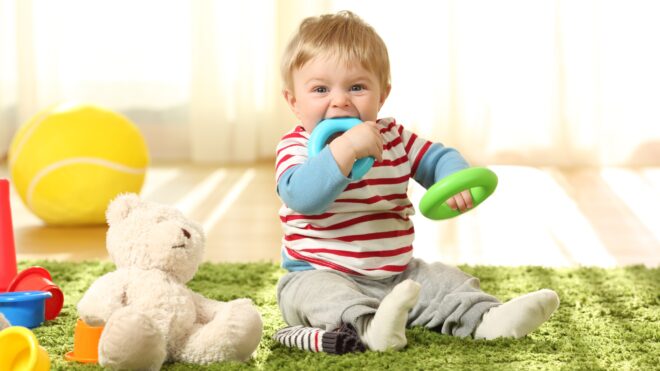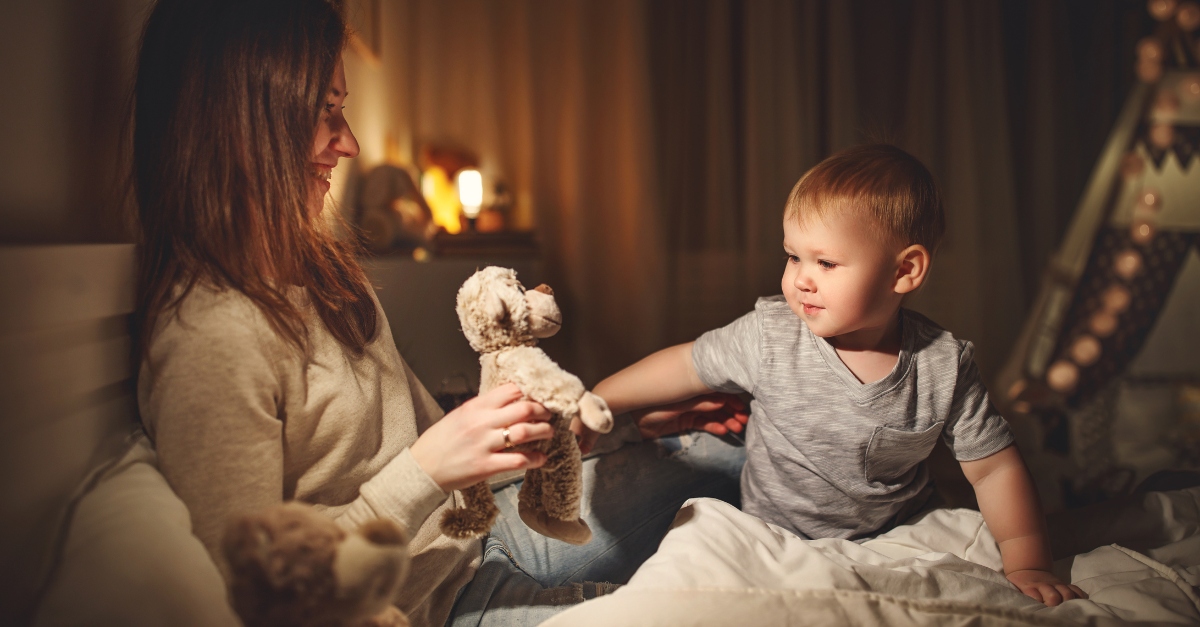
When I was well into my third trimester, I remember people telling me that I should "enjoy my sleep while it lasts." Little did they know, sleep was a sore subject already. I was itchy, impatient, and terrified of accidentally going into labor at home. Also, I had a fully formed tiny human kicking me from the inside at 3 a.m. It couldn't get worse than that, right?
Wrong. When my daughter was a newborn, sleep became a thing of the past. This time, I was waking up at 3 a.m. for a new reason — the early morning feed. Plus, people failed to tell me that I'd be wide awake even when she was sleeping soundly, out of fear that something would go wrong. SIDS is a rare yet scary possibility. For paranoid parents, it's enough of a threat to wake up every 20 minutes just to look at the monitor.
These days, I'm two and a half years in. My daughter can talk to me, tell me how she's feeling, and has a better idea of her sleep routine. Gone are the days of complete paranoia. She knows that if she needs anything, her parents will be there.
But there is one bad habit that's been really hard to break when the 3 a.m. wake-up is now based around a nightmare or due to loneliness. Other parents might assume that I'm nuts — but I have no problem letting her sleep with my husband and me for the rest of the night.
I made the mistake of napping her in a sling as a baby.
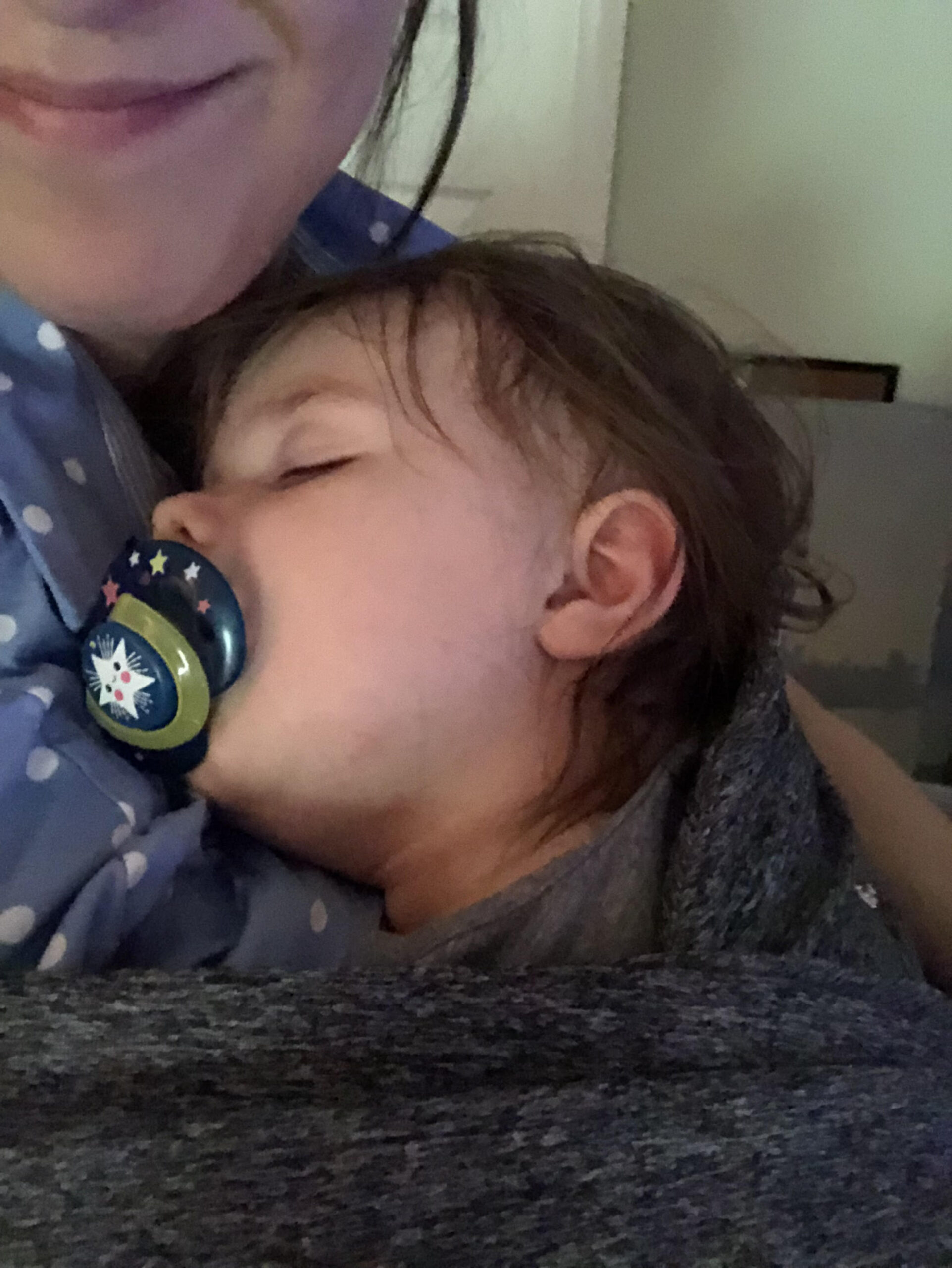
I work from home, but during the first two years, she was constantly by my side. In order to get her to nap, the only thing that worked was if she was directly on my chest. My heartbeat soothed her, and I was fine with it — I was able to work while bonding with her, so it seemed like the best of both worlds.
This set her up to see me as a sleep aid.
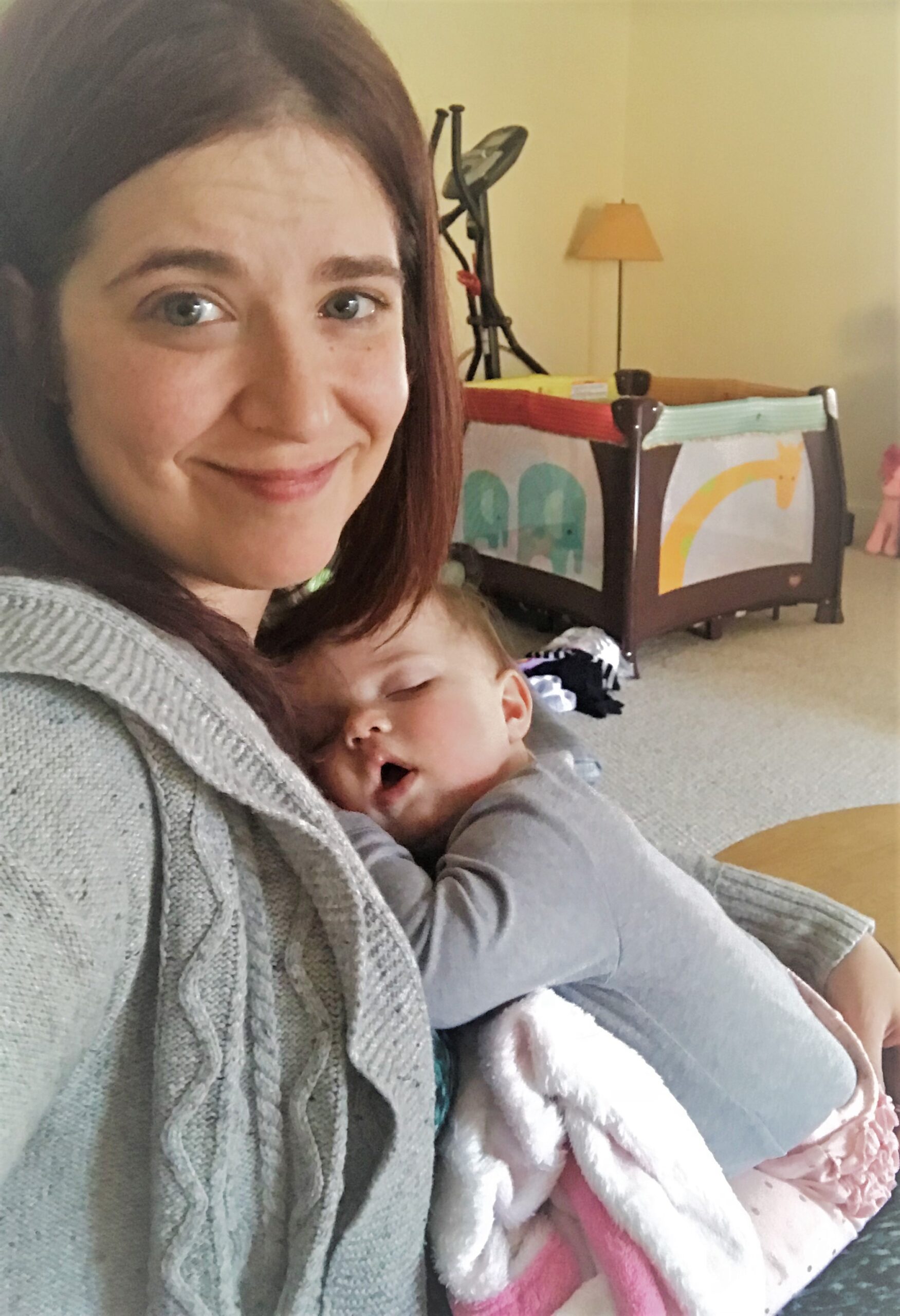
Much like the pacifier, she started needed me there to fall asleep. Plenty of days and nights included me crouched up next to her crib, holding her hand to help comfort her. Again, I had mixed emotions. I knew this may not have been the healthiest way to get her to sleep, but it was nice to feel needed.
Eventually, she got too heavy.
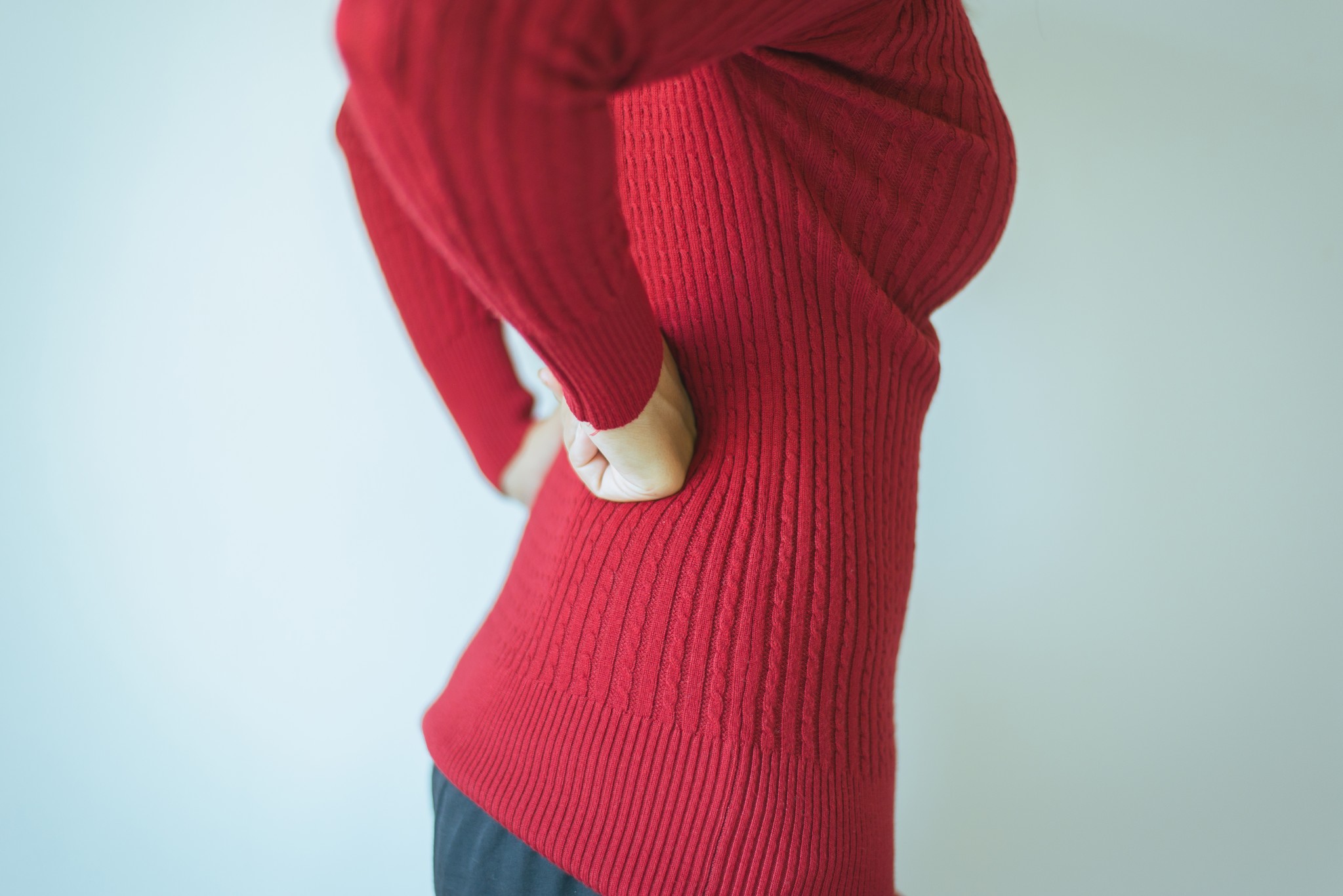
Rocking her, wearing her, and crouching down next to her crib did some serious damage to my back. So naturally, I tried to get her to sleep in my bed. When this arrangement first started, I figured I could transfer her to her crib once she was out. But unfortunately, she always woke up in the middle of the transfer. She was incapable of getting back to sleep after that.
After some time, it made sense to just leave her in my bed.
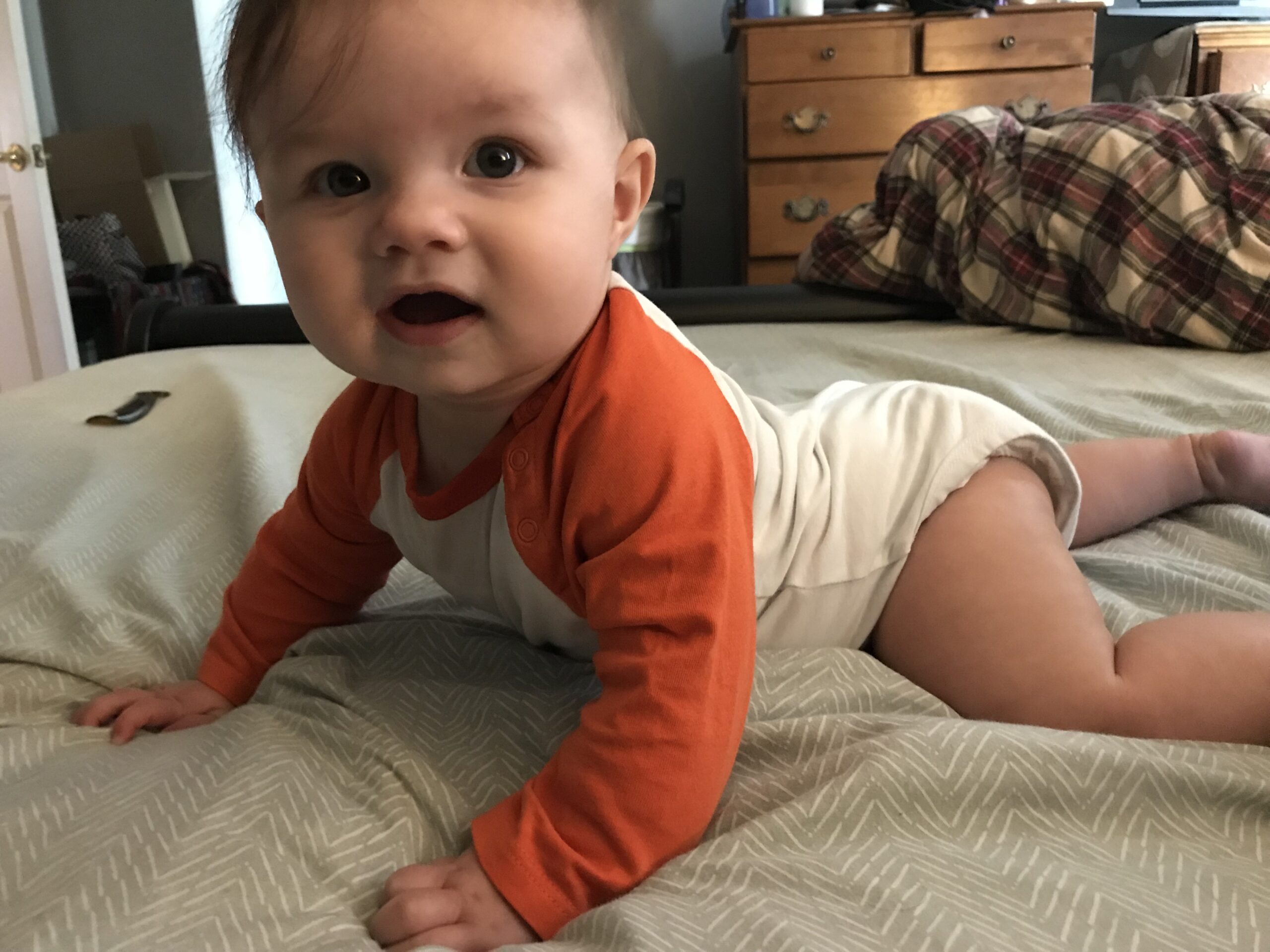
I prepped pillows so that she wouldn't fall off and made sure the room was dark. I also set Alexa to play relaxing spa-like music, in hopes that it would also calm her down. It worked — and usually, I was able to detangle myself from our cuddle and be productive during our time apart. I still checked up on her frequently, but she was always OK.
Sometimes, she also needs a good cry before she goes down.
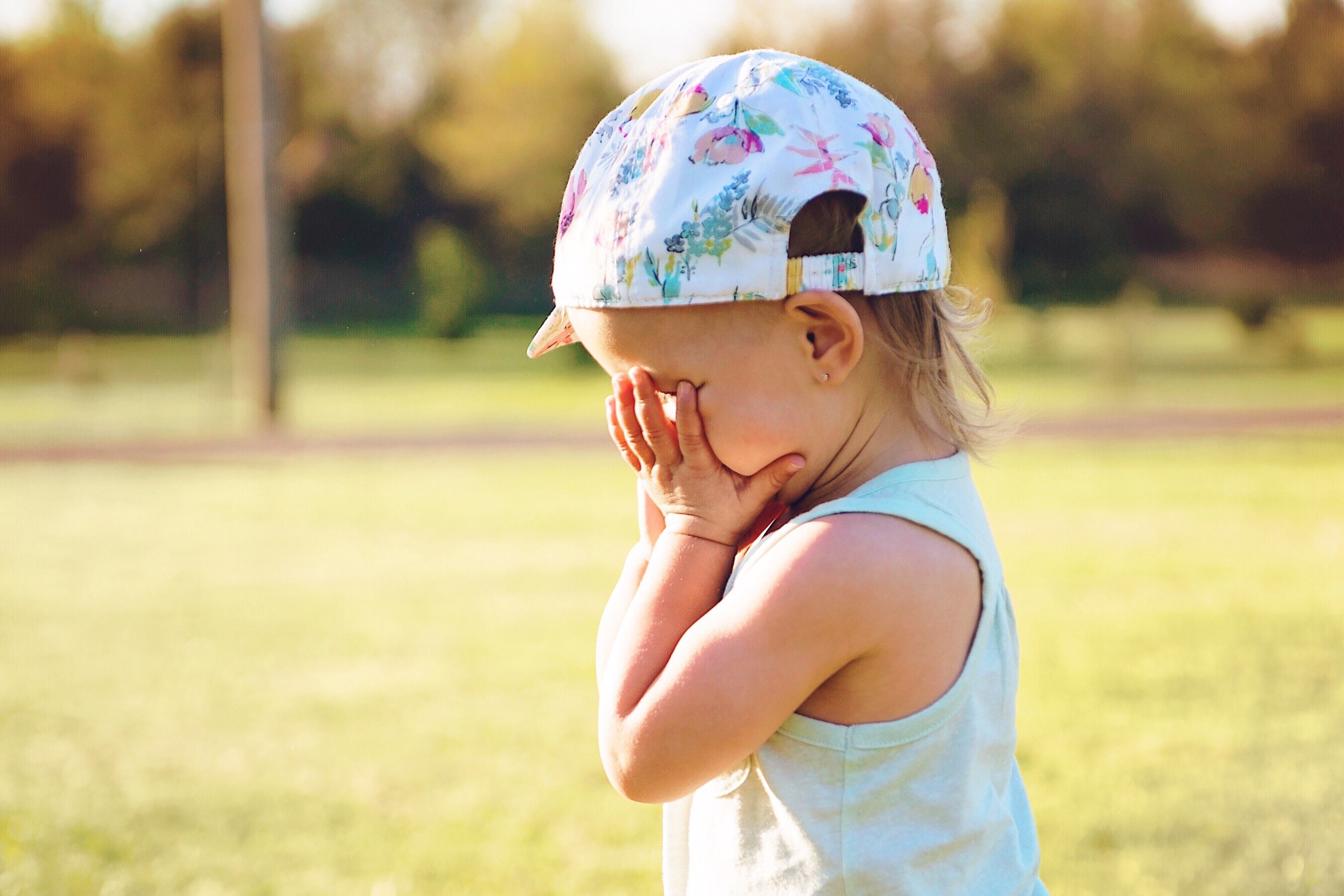
Nobody wants to make their child sad, but if she's still a little antsy before naptime, or she wants to play (despite showcasing all of the standard sleep cues), a time-out usually makes things better. It's rough. She's only left to herself for five minutes, but it lets out any energy she had that was preventing her from shutting down. Adding this to the routine means that there's never a day she goes without a nap.
She's also in our bed a majority of nights.
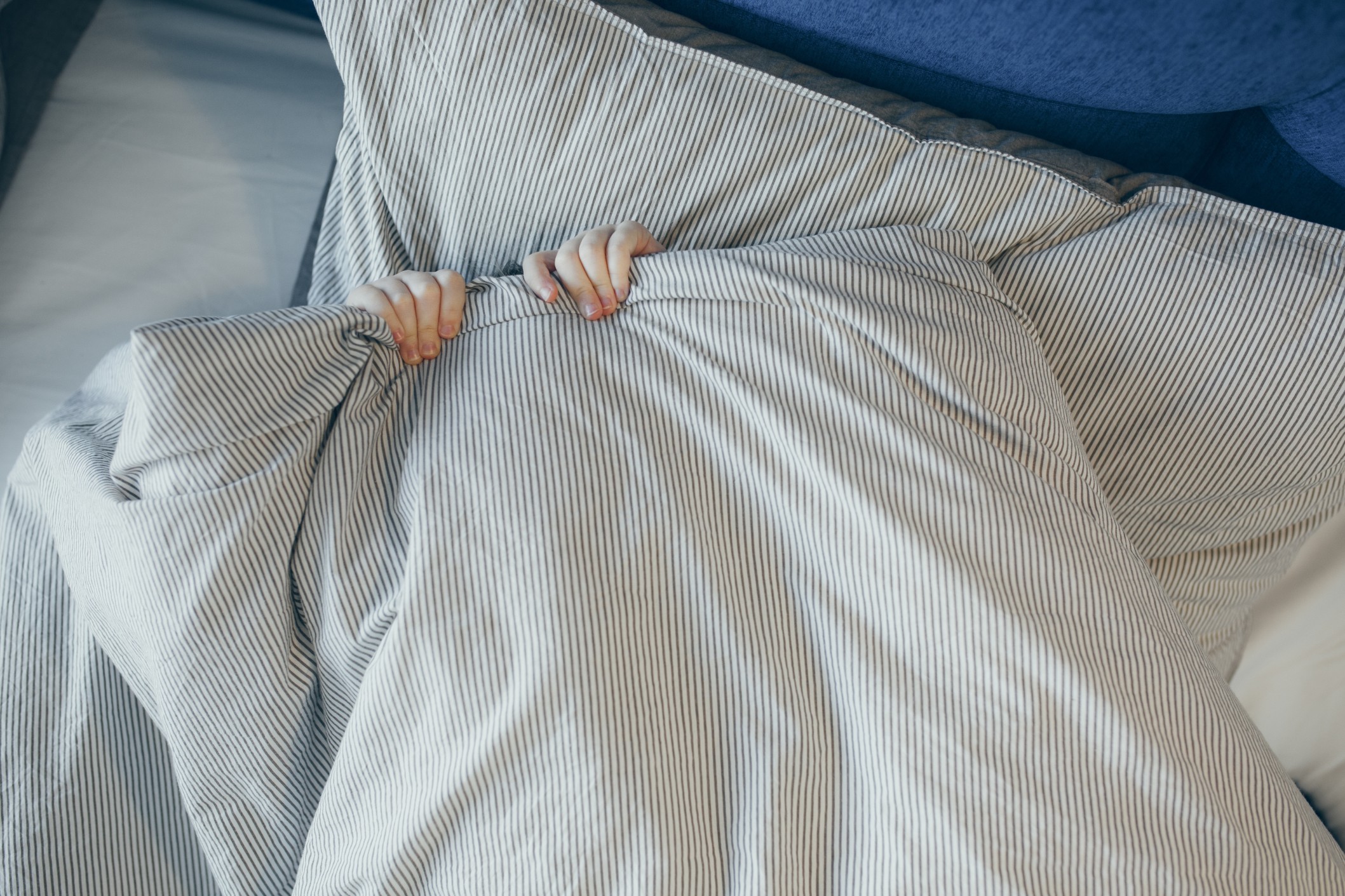
My husband and I have a rule. If she wakes up before 12, he'll go in there and try to calm her down. If it's after that, we just bring her in. The reason being, we need sleep, too — and we know she'll be instantly out if she snuggles up to me. It may be the easy way out, but it's working for us right now. Having limited bed space is a fine trade-off for actually sleeping a few consecutive hours at once.
When she's not there, I miss her.
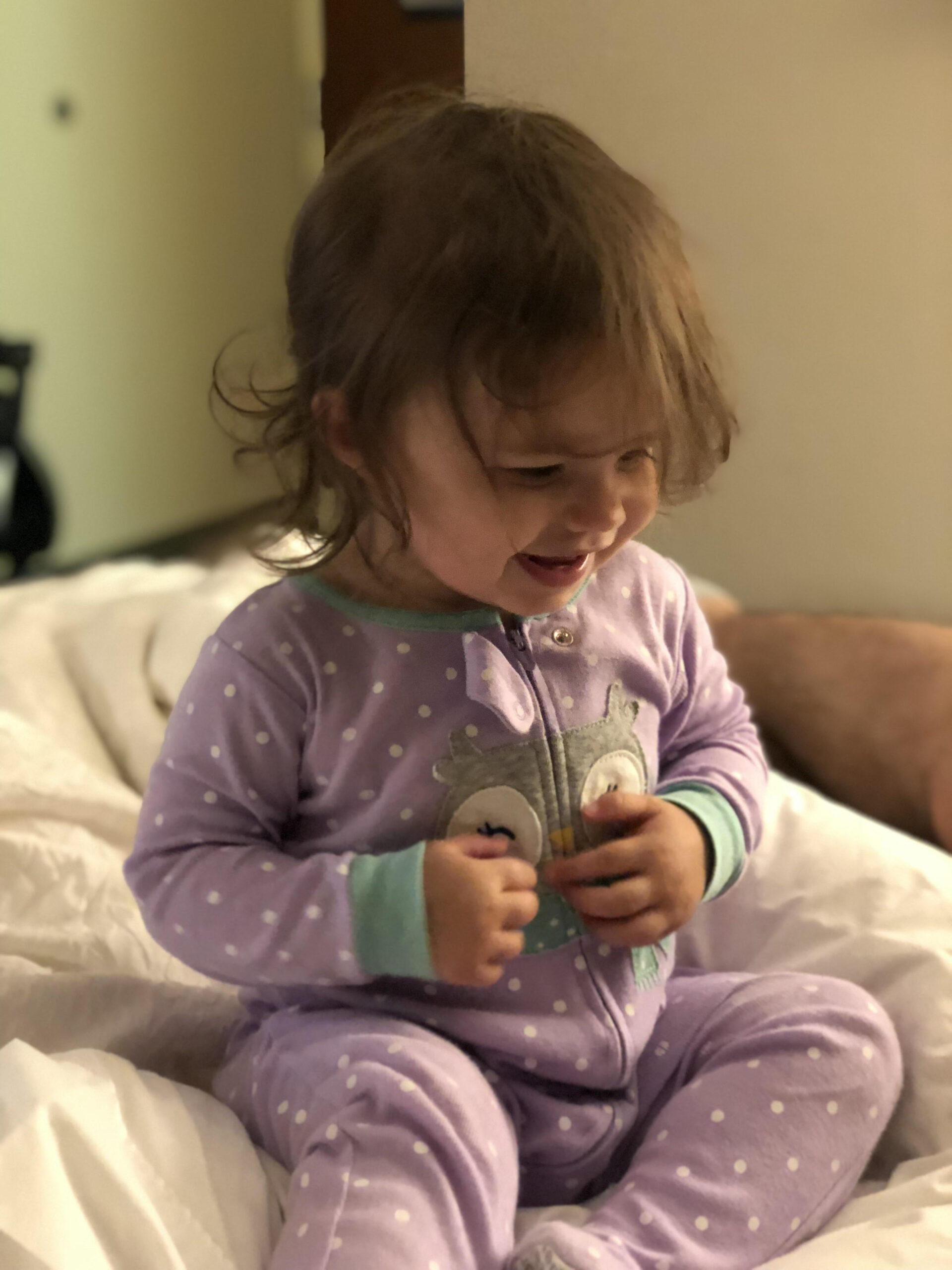
Of course, this arrangement affects me, too. She's almost become essential to my sleep. When I wake up and she's not there, I'm still looking at the monitor, making sure she's OK. Moms will (very reasonably) lament their lack of personal space, but I know that I'll get it back in the future.
It's important to sleep safely.
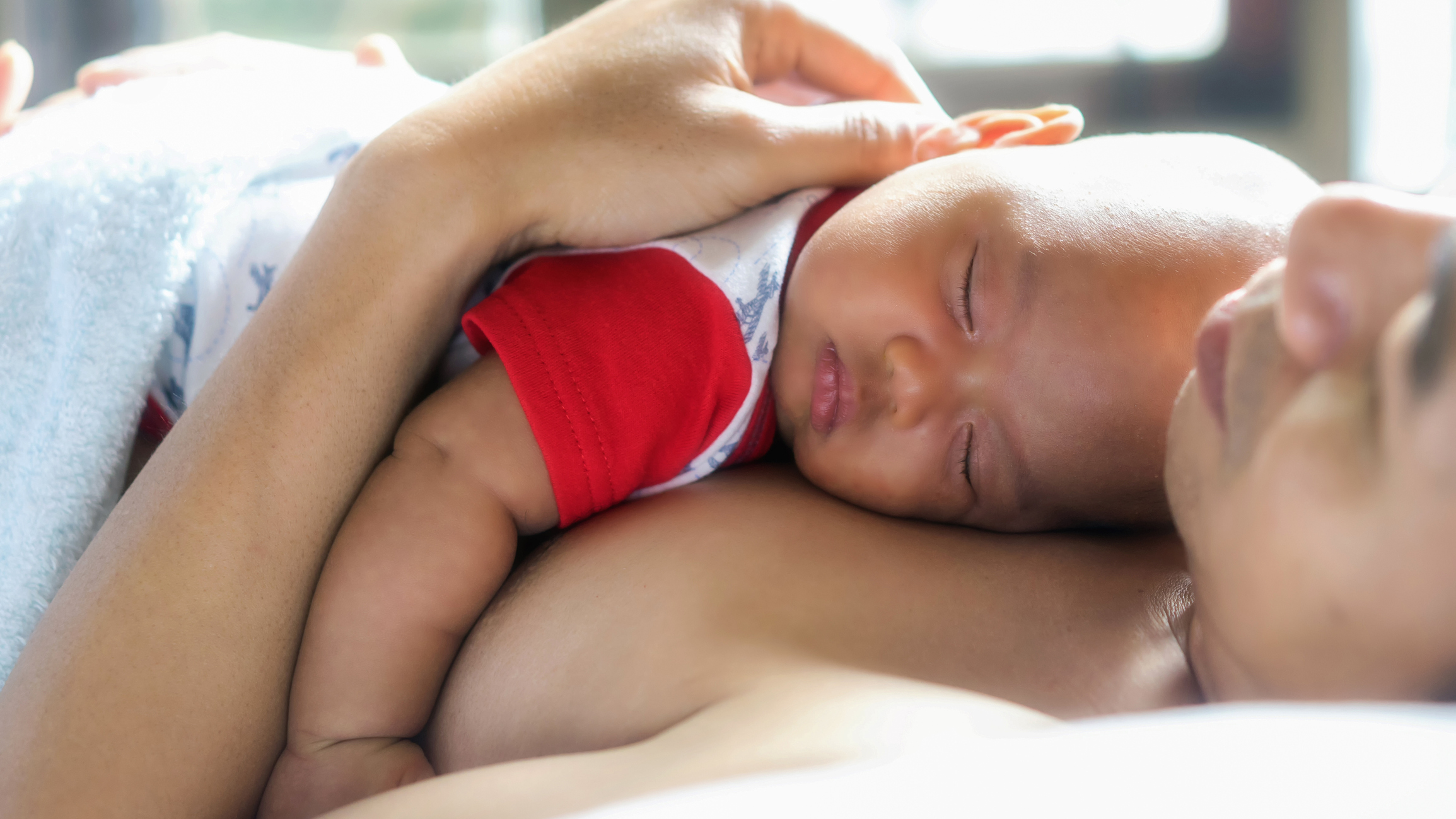
Because she is 2½, we have more confidence when she's in the bedroom. But we also co-slept when she was a lot younger. Most parents fear the idea, as I initially did since so much can go wrong. But when it's the only way the two of you can both get a decent night of sleep, it's worth a shot when you know how to do it safely and correctly.
You should avoid co-sleeping until your child is at least 6 months old.
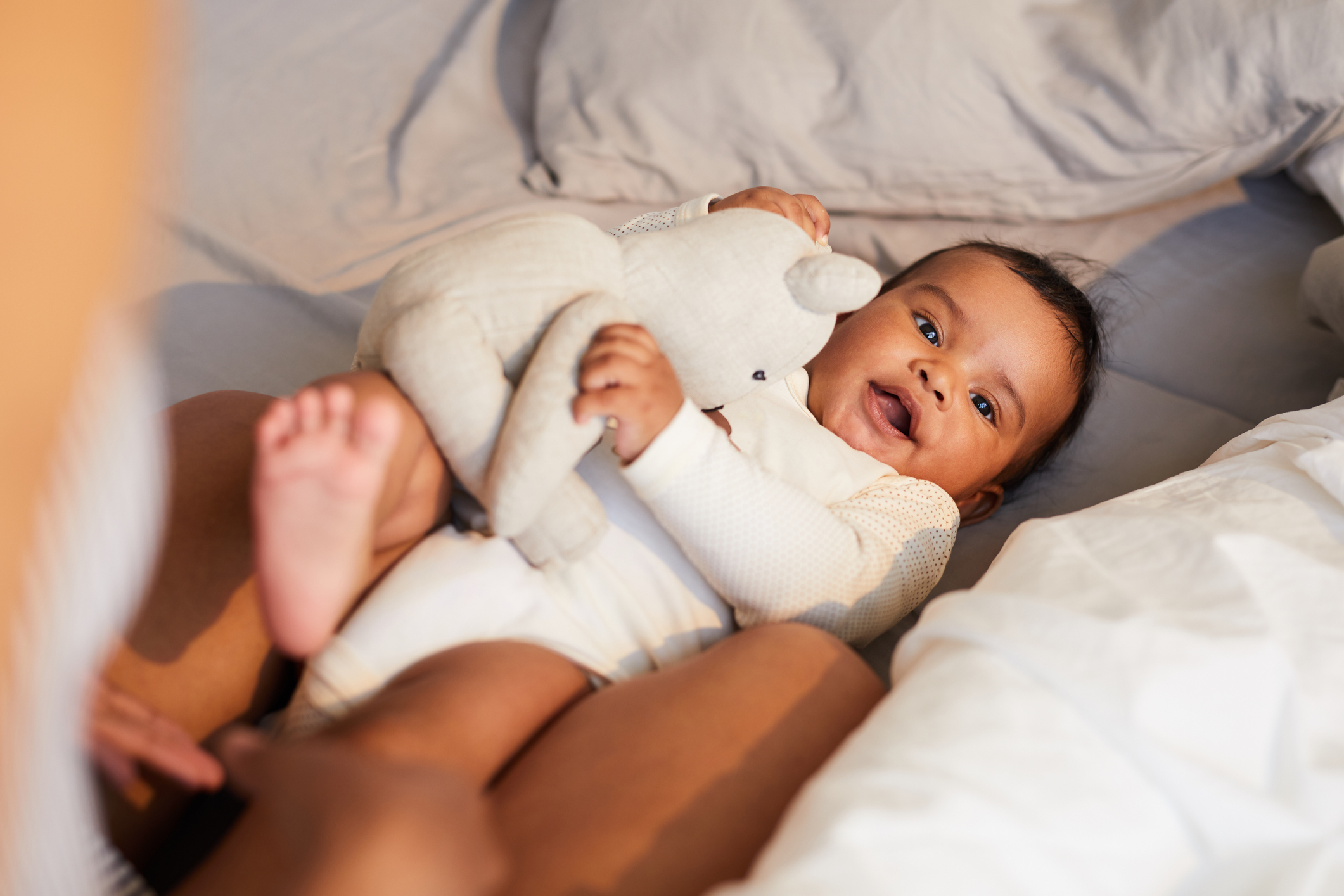
According to WebMD, the 0- to 6-month age range is when sleep-related deaths are the highest. Of course, you should also make sure that you never get into bed with your baby when you're under the influence of drugs or alcohol. Babies can still be in your room, but not sharing your space overnight — a bassinet close by is your best bet.
You'll also need to be careful about pillow and sheet placement.
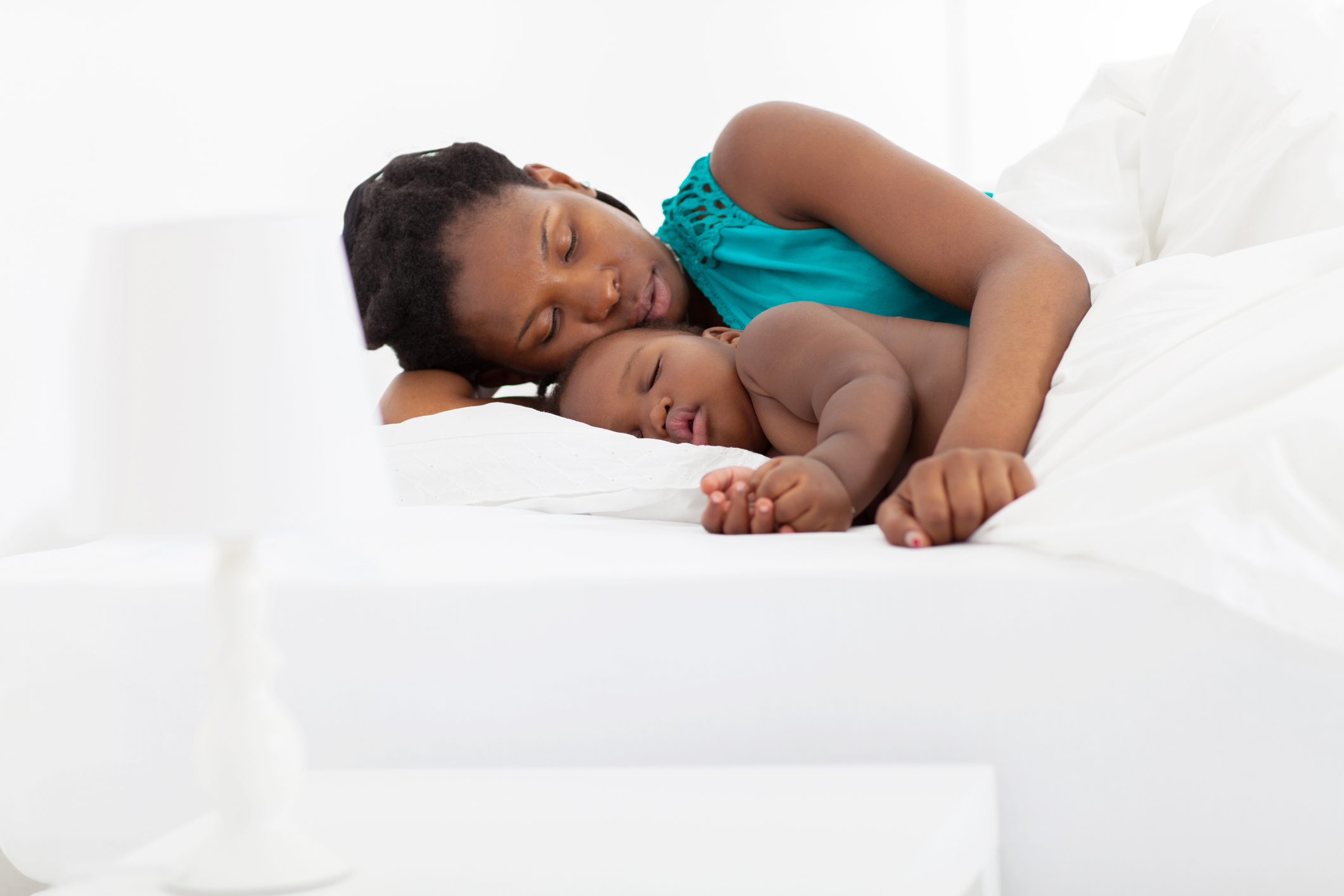
Pillows are OK for children between the ages of 1 and 3, but you'll still want to be smart about how they're placed. Stuffed animals are also a risk for children under the 1-year mark. Once you've been successful with co-sleeping, it'll become a lot easier.
I know this might prevent obstacles in the future.
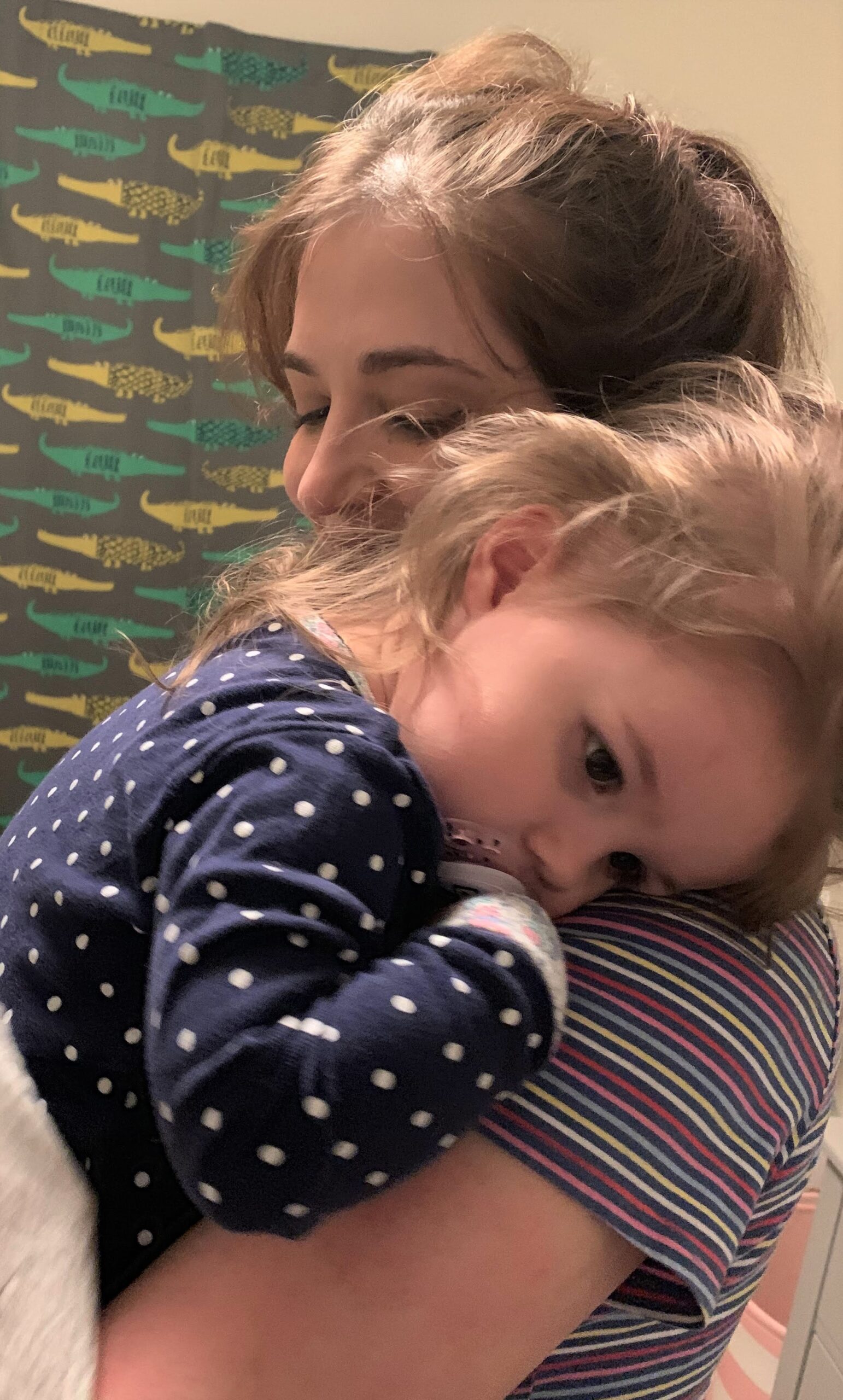
There's always that slim chance that she'll never want to move into her own bed full-time. But it's hard to predict that just now. I figure that I'll just go with the flow and deal with these problems when they arise. But for now, this is working. And that's what parenting is all about — realizing that the solution you had in your head may no longer be practical for your situation. When you're a parent, you learn how to adapt.
I know that my family has criticized my choices.
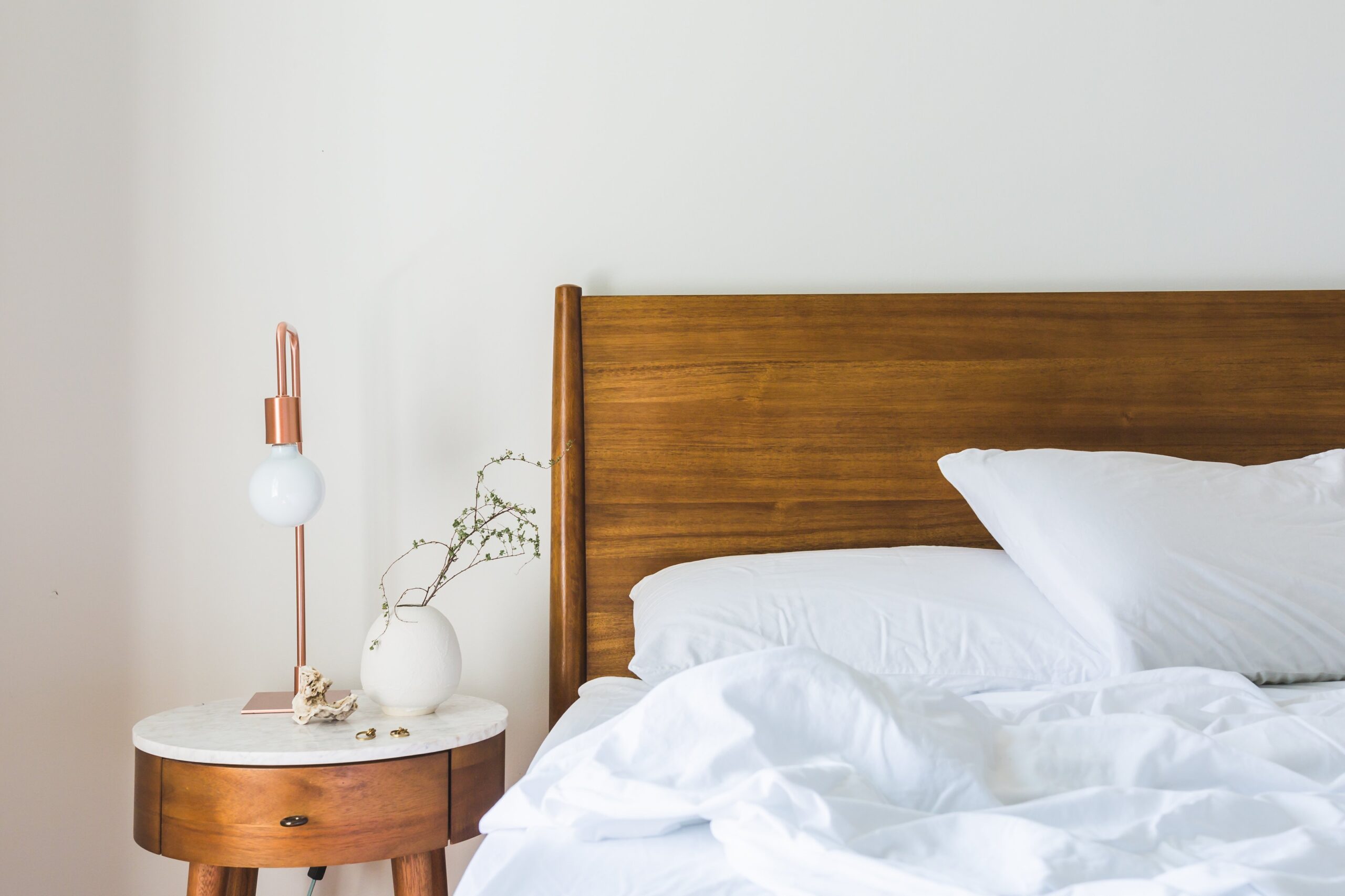
I love the fact that my daughter looks to me as a source of comfort. Even though I know that some of my family members judge me for it, having her in our bed for a few hours a night — or for a few hours during the day — just makes everyone's life easier right now. Parenting is hard, so if you find a shortcut that works, you should take it without unnecessary guilt.
Just remember, moms, there's no one right way.

What works for one kid might not work for another. But when you're trying to take care of your child, your own mental health is worth protecting. If you don't get the proper amount of sleep due to your toddler constantly keeping you up, you're not going to be your best self. Don't be afraid to try a method that's not found in a book. Brainstorm safe ideas that work for you and your child, since you know them best.

